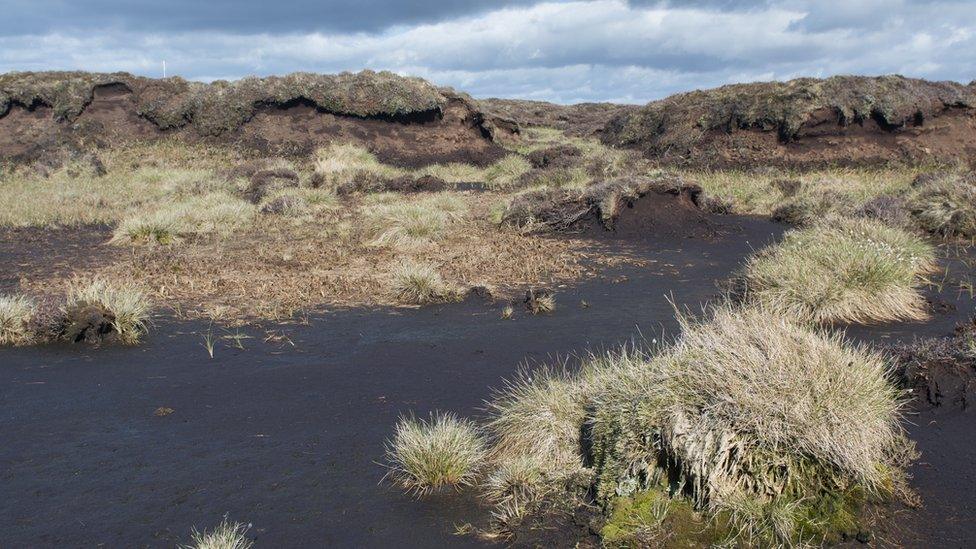Greater Manchester peat bog restoration to aid climate change fight
- Published
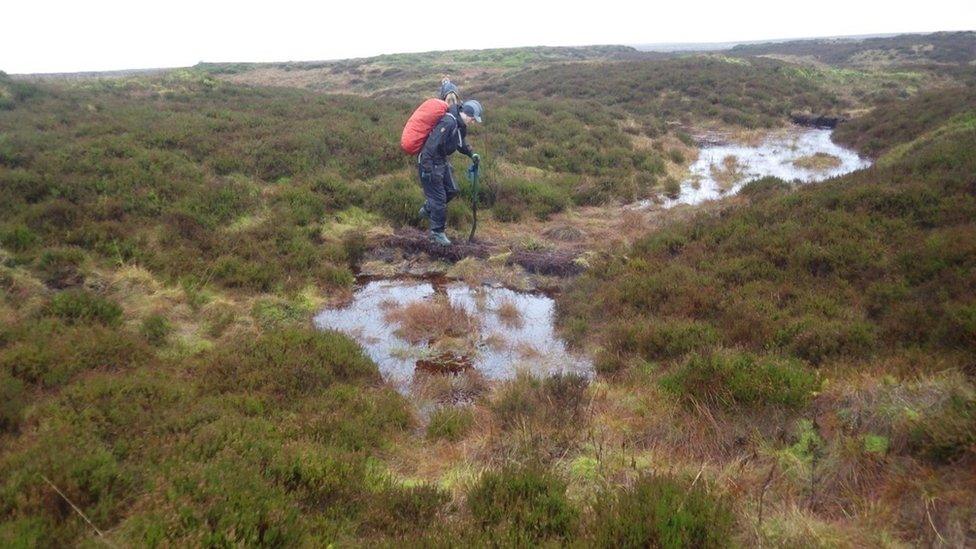
Wet peat bogs store carbon but the RSPB Dove Stone site has been drying out
The restoration of an ancient peat bog has been bolstered by a £1.2m grant.
The 941-hectare (2,325-acre) bog near Oldham in Greater Manchester is drying out and is now releasing carbon into the atmosphere rather than storing it.
The funding from Natural England will help reverse the damage at the RSPB Dove Stone site, external by installing dams to retain water and planting moss.
Site manager Kate Hanley said restoring the bog was "vital to help fight the nature and climate emergency".
Peatlands are an important carbon store in the fight against climate change and are home to many species of wading birds and insects.
But the Dove Stone bog has suffered over the last 200 years from acid rain and pollution, causing it to erode and dry out.
As drained peat dries, CO2 is produced and restoration is required to help them flourish again.
The plan is to install 10,000 peat dams to keep water in and prevent dead plants decomposing so that new peat can be made that is then able to store carbon.
A further 1,000 stone dams will be added to reduce water loss, which will allow thousands of newly planted sphagnum moss plants to grow.
This moss acts like "a giant sponge" helping to prevent flooding nearby by trapping water and also helping to capture carbon.
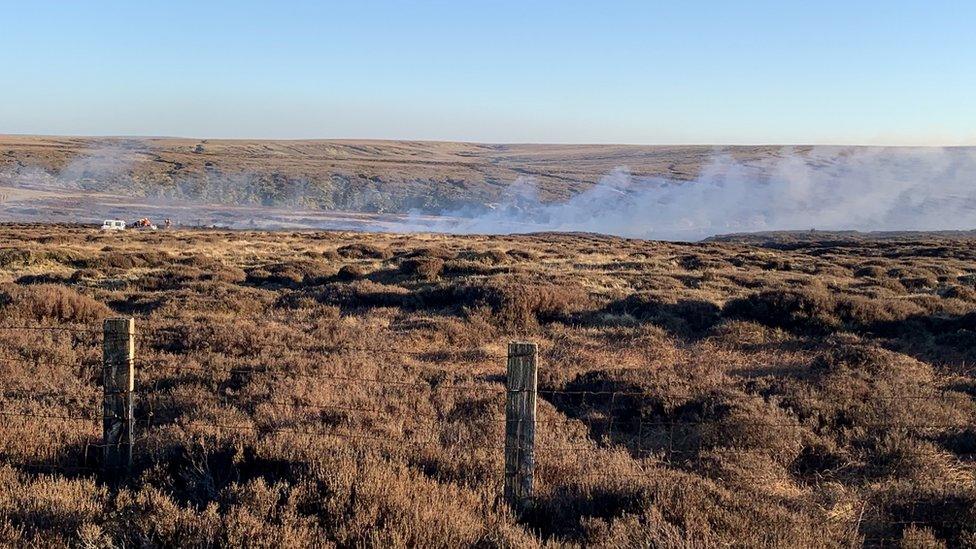
Fires have spread across dry land including Saddleworth Moor near the Dove Stone reservoir in Oldham
Two new seasonal fire rangers will also be hired to help prevent wildfires, which have devastated the area.
Ms Hanley said restoration of "active blanket bog" was "vital to help fight the nature and climate emergency".
"Not only does this unique habitat provide a home for a range of birds and wildlife, it is essential for capturing carbon and storing water," she said.
Ed Lawrance, from United Utilities, said the conservation work would also "help improve water quality and in the long-term, help with natural flood management in the area".
The cash, from the government's Nature for Climate Peatland Grant Scheme, is administered by Natural England, with the work carried out by volunteers and local contractors.
The landowner, United Utilities, is contributing a further £400,000.

Why not follow BBC North West on Facebook, external, Twitter, external and Instagram, external? You can also send story ideas to northwest.newsonline@bbc.co.uk, external
- Published23 February 2022
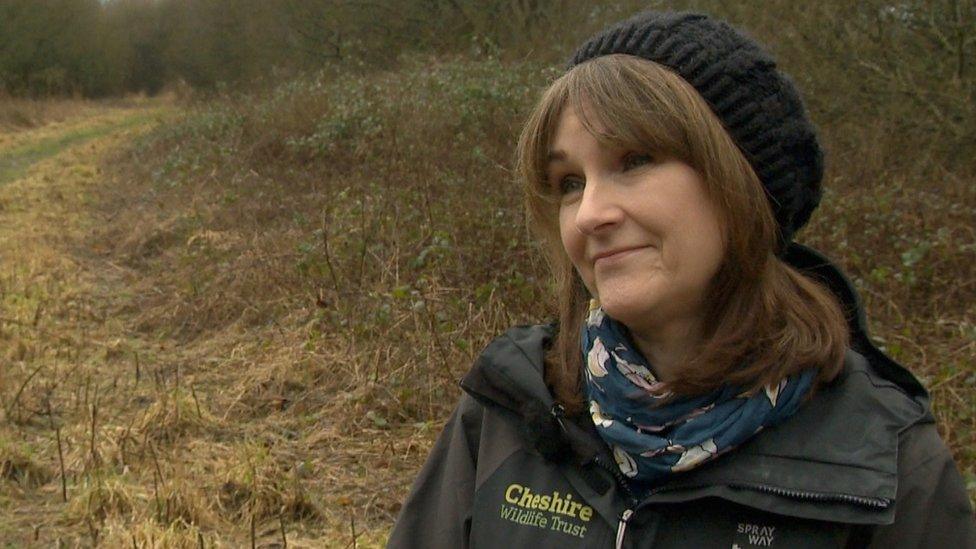
- Published12 November 2021
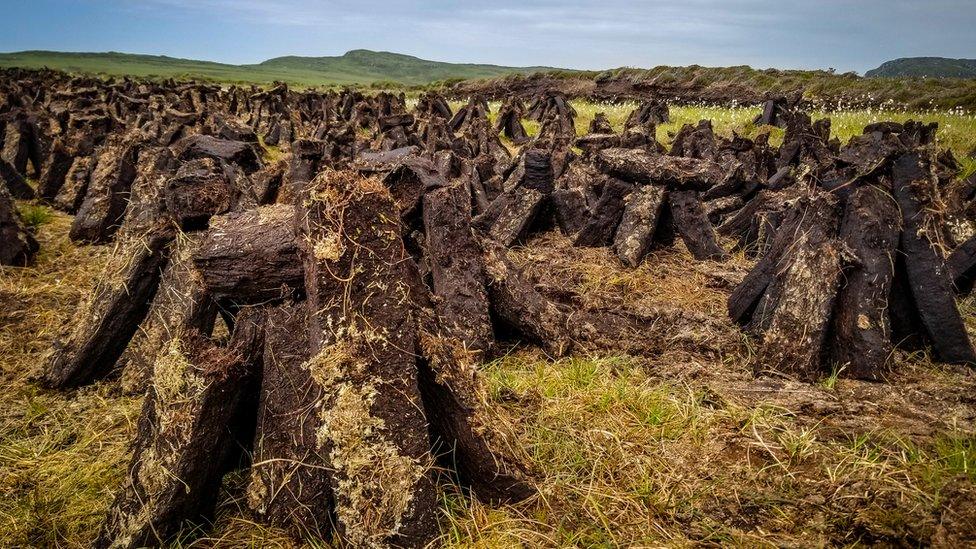
- Published7 November 2021
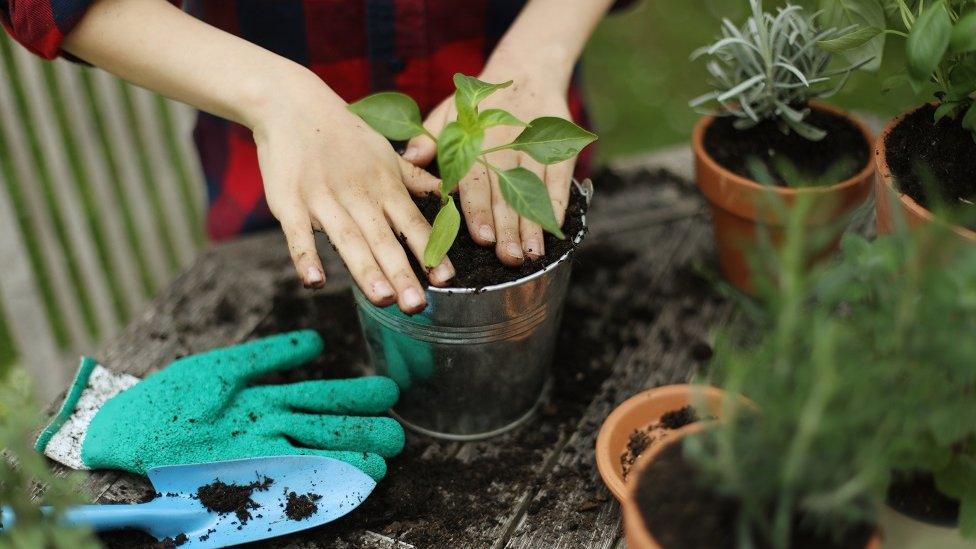
- Published22 July 2019
